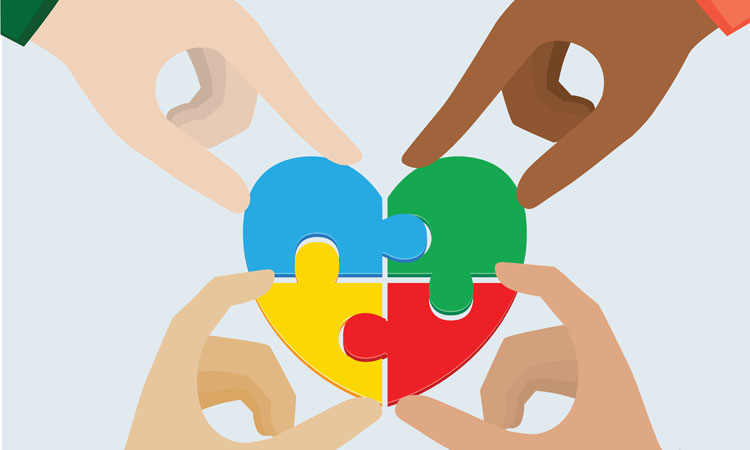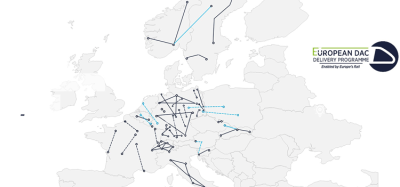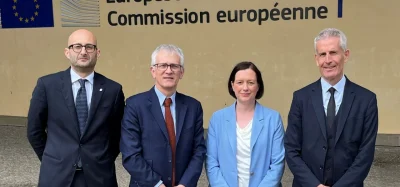Building a diverse and inclusive workforce post-COVID-19
Posted: 14 December 2020 | Jo Moffatt, Sukhy Duggal | No comments yet
The coronavirus lockdowns changed the UK overnight. For office workers, it meant a dramatic shift towards the workplace becoming the kitchen table, with pets and children being distractions, and technology being pushed to its limits. Atkins’ Jo Moffatt and Sukhy Duggal look at how to assess and capitalise on the ‘new normal’ through the lens of Equality, Diversity and Inclusion (ED&I).


Break down the biases by listening
The impact on family life from COVID-19 is one important area of this learning process; a recent article highlighted the effect on parents, with greater responsibility such as childcare and home schooling falling on women and increasing the ‘motherhood penalty’.
Statistics from Public Health England show people from Black, Asian and Minority Ethnic (BAME) backgrounds have seen a disproportionate impact from coronavirus, exacerbated by the added emotional impact of the killing of George Floyd and the ensuing Black Lives Matter protests.
People with disabilities have also seen a disproportionate effect, with figures from the ONS showing that disabled women of working age are 11-times more likely to die from COVID-19 than their peers. The UN Commissioner for Human Rights4 also recently highlighted that LGBT+ people are among those particularly vulnerable in this crisis and are calling on member states to take targeted steps to address this.
During the pandemic, Atkins has been active in supporting our senior leadership teams with dedicated inclusive leadership training and an allyship programme.
Another notable impact is on graduates, apprentices and interns; a report from the Institute of Student Employers showed 27 per cent of firms cutting their graduate recruitment hires in the wake of COVID-19. Those in work are also struggling without established networks, or the wider safety net of proper advice and support, and feeling isolated.
Many also have issues with laptops, less workspace, cramped living conditions and less than perfect Wi-Fi connectivity, all adding to the uncertainty and long hours of remote working.
Against this unprecedented backdrop, we must listen; to understand the issues faced by everyone in our workforce and provide support accordingly.
Creating parity to access through refocused leadership
Part of being a forward-thinking company is about creating parity to access; putting inclusive leadership at the heart of the business and ensuring entire teams are being listened to. But it’s not the case across the board. The Chartered Institute of Management says: “Experience from previous crises show that in recovering from COVID-19 there is a risk that companies will not prioritise diversity and inclusion.”
This doesn’t bode well, and we mustn’t be complacent that we have all the answers.
During the pandemic, Atkins has been active in supporting our senior leadership teams with dedicated inclusive leadership training and an allyship programme. We have also rolled out a two‑way mentoring programme, to promote diversity of outlooks in business decisions from senior leaders and to support our Early Careers communities. We are also proactively working with government departments, our clients and our suppliers around ED&I – creating a ‘growth mindset’ culture where we can learn from each other.
Everyone on board by connecting networks of networks
ED&I policies sponsored by senior executives are only successful when everyone gets on board, and workable policies and guidelines become embedded into a workforce culture. It is also not the responsibility of those minorities in the workplace to uphold or drive policy change – it must be those in the majority who have the most to learn and change.
Reassuring employees they have a voice to share their experiences will break the silence that so often accompanies feelings of being overlooked.
Over the past few years, Atkins has established global online employee forums and networks to provide mutual support and a voice to groups of employees.
Over the past few years, Atkins has established global online employee forums and networks to provide mutual support and a voice to groups of employees. These include our ED&I forum (focussing on policies and highlighting actions that senior leaders can take), our ‘Equilibrium’ (LGBT+) Network, our ‘Women’s Professional Network’, our ‘Enable’ Network (for those with disabilities and carers) and our ‘Embrace’ (BAME) Network. More recently we’ve added networks specifically for Neurodiversity, Menopause at Work, Parents and those from the Armed Forces.
Each network has senior board-level sponsorship, so they can listen, learn, provide support and take forward relevant points of action; and during the lockdown, the use of digital communications, dedicated webinars and online polling have allowed them to keep running and reach a wider audience through enabling wider participation and broadening their reach; and also allowing networks to connect and collaborate.
Listen to shape and act
Workplaces will, and must, look different post‑COVID-19. Atkins recently carried out workplace surveys to employees about views on new guidelines or policies that will affect them. This consultation on our plans to return to our offices ensures we consider the specific needs of the different networks. Only by doing this will we fully support and implement the needs of all employees, so we get better decisions and ensure we don’t inadvertently introduce discrimination in our planning.
It is also crucial to build a culture of psychological safety (the belief that you’ll be accepted, respected and won’t be punished when you make a mistake) within our organisations. This is more important than ever during COVID-19, as in uncertain environments our brains are hard-wired to act in ‘fight or flight’ mode. Accentuating unconscious bias, shutting down perspective and reducing analytical reasoning which, in turn, handicaps the strategic thinking that is so desperately needed in today’s workplace.
The future is changing, so must we
If we want to ‘Build Back Better’ we need to learn lessons from what has worked well for us in the past, add in creativity and innovation, and overlay some of the risks and opportunities that come with the COVID-19 crisis.
There is a huge amount of research showing that diverse teams deliver better financial results, are more innovative, are better at identifying risks and deliver higher levels of customer satisfaction.
There is a huge amount of research showing that diverse teams deliver better financial results, are more innovative, are better at identifying risks and deliver higher levels of customer satisfaction. There is also strong evidence that creating inclusive cultures in teams makes it easier for everyone to perform to their full potential as people are more able to speak up and share their views.
Making the rail sector more representative of the UK population will also create an environment that will instinctively ‘Put the Passenger First’. We already know that we’ll need to bring in new skillsets as technology changes; to do this, we need to focus on how we make our sector attractive to this diverse talent, reducing barriers to entry and making our teams more accessible and inclusive to people coming in.
Ultimately, let’s make sure this crisis becomes a catalyst for positive change rather than setting the clock backwards. Both on a personal and organisational level, individual actions can collectively make a difference – and now is the time to start!











